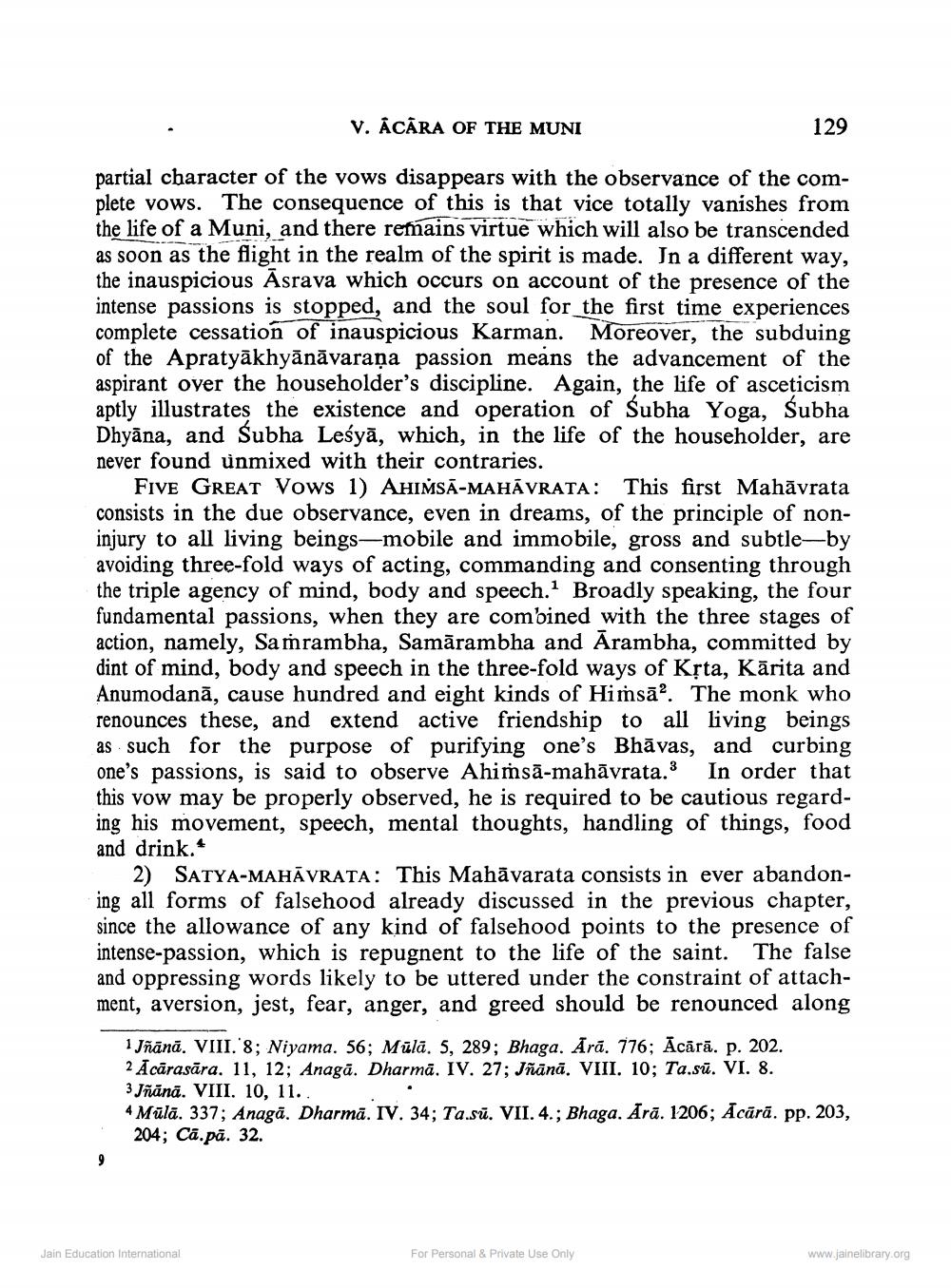________________
V. ACARA OF THE MUNI
129
partial character of the vows disappears with the observance of the complete vows. The consequence of this is that vice totally vanishes from the life of a Muni, and there remains virtue which will also be transcended as soon as the flight in the realm of the spirit is made. In a different way, the inauspicious Asrava which occurs on account of the presence of the intense passions is stopped, and the soul for the first time experiences complete cessation of inauspicious Karman. Moreover, the subduing of the Apratyākhyānāvaraņa passion means the advancement of the aspirant over the householder's discipline. Again, the life of asceticism aptly illustrates the existence and operation of Subha Yoga, Subha Dhyāna, and Subha Leśyā, which, in the life of the householder, are never found unmixed with their contraries.
FIVE GREAT Vows 1) AHIŃSĀ-MAHĀVRATA: This first Mahāvrata consists in the due observance, even in dreams, of the principle of noninjury to all living beings—mobile and immobile, gross and subtle—by avoiding three-fold ways of acting, commanding and consenting through the triple agency of mind, body and speech. Broadly speaking, the four fundamental passions, when they are combined with the three stages of action, namely, Saṁrambha, Samārambha and Arambha, committed by dint of mind, body and speech in the three-fold ways of Krta, Kārita and Anumodană, cause hundred and eight kinds of Himsā”. The monk who renounces these, and extend active friendship to all living beings as such for the purpose of purifying one's Bhāvas, and curbing one's passions, is said to observe Ahimsā-mahāvrata.3 In order that this vow may be properly observed, he is required to be cautious regarding his movement, speech, mental thoughts, handling of things, food and drink.
2) SATYA-MAHĀVRATA: This Mahāvarata consists in ever abandoning all forms of falsehood already discussed in the previous chapter, since the allowance of any kind of falsehood points to the presence of intense-passion, which is repugnent to the life of the saint. The false and oppressing words likely to be uttered under the constraint of attachment, aversion, jest, fear, anger, and greed should be renounced along
1 Jñānā. VIII. 8; Niyama. 56; Mülā. 5, 289; Bhaga. Ārā. 776; Ācārā. p. 202. 2 Ācārasāra. 11, 12; Anagă. Dharma. IV. 27; Jņānā. VIII. 10; Ta.sū. VI. 8. 3 Jñānā. VIII. 10, 11. 4 Mülā. 337; Anagā. Dharmā. IV. 34; Ta.sū. VII. 4.; Bhaga. Arā. 1206; Ācārā. pp. 203, 204; Ca.pā. 32.
Jain Education International
For Personal & Private Use Only
www.jainelibrary.org




